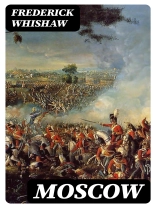Frederick Whishaw’s ‘Moscow’ is a vivid and intricate exploration of the Russian capital, capturing its complex interplay between history, culture, and the everyday lives of its citizens. Whishaw employs a rich, descriptive literary style that immerses the reader in the vibrant streets of Moscow, blending historical context with personal narratives that highlight both the grandeur and the struggles of urban life. The text reflects Whishaw’s keen observation of the sociopolitical landscape of the time, presenting Moscow as a living, breathing entity steeped in tradition yet grappling with the modern world. Frederick Whishaw, a notable English writer and playwright of the late 19th century, drew from his extensive travels and experiences within Russia to inform his portrayals in ‘Moscow.’ His personal connection to the region, coupled with insights gained through his observations of Russian society, allowed him to craft a narrative that resonates with authenticity and depth. Whishaw’s literary journey often sought to bridge the cultural gaps between East and West, making this work a significant entry in his oeuvre. I highly recommend ‘Moscow’ to readers interested in Russian literature or those seeking a profound understanding of urban life in historical contexts. Whishaw’s eloquent prose and keen insights offer a captivating window into a city defined by its contradictions, encouraging reflection not only on Moscow but the broader human experience.
Про автора
Frederick Whishaw (1854–1934) was a British novelist and historian, remembered for his contributions to literature that often focused on Russian themes and historical fiction. Born into the Victorian era, Whishaw’s works reflected a fascination with Russia, a country about which curiosity and speculation were rife amongst his contemporaries. His novel ‘Moscow’ delves into the rich tapestry of Russian culture and history, showcasing his keen eye for detail and his ability to bring the past to life through vivid narrative and intricate storytelling. Whishaw’s literary style is marked by a blend of adventure, romance, and historical accuracy, providing readers with an immersive experience that both educates and entertains. His novels are distinguished by their careful research and sympathetic treatment of Russian life, something that set him apart in a genre often dominated by Western-centric narratives. While not as widely known today, Whishaw’s contributions to the historical novel genre remain significant, offering a window into the mores and interests of late 19th and early 20th-century British society and their view of Russia.












